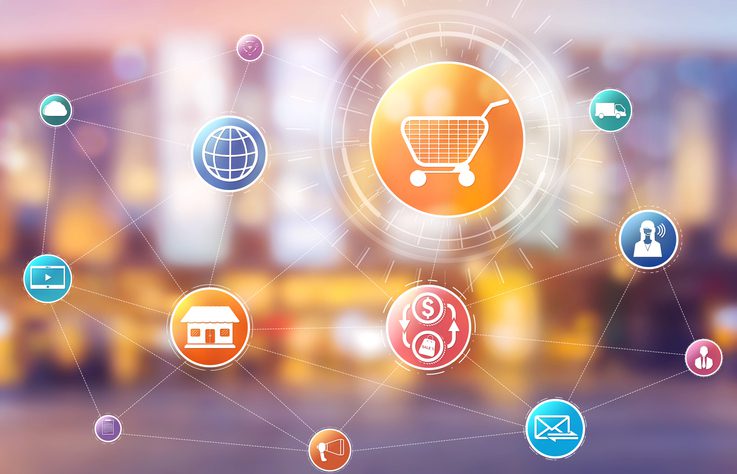
Understanding Consumer Expectations Around Omnichannel Approach
There are many ways to engage with potential customers these days, from social media to mobile and more. While it’s important that you establish a presence on different channels so that you can reach your target audience, it’s also important that you create a seamless experience. This is known as an omnichannel approach. An omnichannel approach allows customers to engage with a brand no matter what platform they’re on or what device they’re using, whether online or in-store.
What Is An Omnichannel Approach?
The idea of the omnichannel approach is that consumers are no longer on a buyer’s journey that is strictly linear. For example, they may begin their journey by searching for a product and reading up on it by checking out your blog. But then they may check out some customer reviews by taking a look at your social media pages. Then, they may sign up to your email newsletter, where you may continue to nurture them. They may read these newsletters on their smartphone even though they had been engaging with your brand on their computer.
Finally, they may choose to go to your physical location in order to make a purchase instead of buying online. This is an example of how a customer can make use of multiple platforms and devices to go through their buyer’s journey.
Read Our Article About Types Of Advertisement Opportunities For Popular Streaming Services
Omnichannel Vs Multichannel Marketing
Multichannel refers to the ability to engage with customers on various channels. For example, if customers can reach you on social media, a live chat feature, a phone number, or an email address, then that’s multichannel marketing. The omnichannel experience allows customers to do the same thing — but there’s one big difference. With omnichannel marketing, all of those channels are connected to create a singular experience.
For example, say a customer emails you with a question and you answer it. The customer does some more research, then engages again on your website’s live chat. The person they’re engaging with will have access to the information that was exchanged via email. As a result, the customer won’t have to repeat questions or information that they already gave.
Essentially, omnichannel marketing ensures a seamless experience across all channels.
What Does It Mean To Take An Omnichannel Approach? 
You’re no longer in charge of laying out the journey for your buyers. Consumers demand control over their own buyer’s journey, which means that you have to take an omnichannel approach in order to give them this freedom. There are several ways to do this:
Know your audience
Develop buyer personas so that you understand your customer’s needs and pain points. By doing so, you’ll be able to address those pain points across all channels. It will also make it easier to identify your customers’ buying patterns, which you can leverage throughout your marketing efforts.
Have an omnichannel presence
Don’t just focus on one marketing channel. Set up a website with a regularly updated blog. Establish a presence on several social media platforms that you know your target audience uses. Engage in email marketing. Ensure your online efforts are mobile-friendly. Use pay-per-click advertising. Don’t ignore traditional marketing methods, such as TV or newspaper ads. Make it easy to be found no matter what channel your audience is using.
Make sure your branding is consistent
It’s extremely important that your branding is consistent on all channels. This means that you need to have the same message, the same tone, and even the same style. Otherwise, your audience may get confused about who you are and what you represent.
Be easy to contact
Present several options for contacting you where ever your audience is. For example, respond to comments left on your social media pages, provide an email address and phone number on your website, allow mobile users to just click on your phone number on your site, and submit your NAP (name, address, and phone number) to local online inventories, and more. You might even want to implement a live chat into your website.
Meet consumers at every stage of their journey
Make sure that consumers can advance through their buyer’s journey no matter what platform they’re on. This means having content that’s suitable for every stage of the buyer’s journey on all of your channels so that you can meet their needs and nurture them through their current stage in no matter where they are.
The Benefits Of Omnichannel Marketing
Implementing an omnichannel marketing strategy may take some extra work, initially, but it’s well worth the effort. With that in mind, the following are some of the primary benefits of omnichannel marketing:
Create a seamless customer journey 
Arguably the biggest advantage of omnichannel marketing is the fact that it results in a seamless customer journey. Customers will be able to pick up where they left off on any channel, making it easy to nurture them through the sales funnel. Additionally, there will be fewer roadblocks to conversion, resulting in fewer lost customers.
Increase your brand loyalty
Using omnichannel marketing improves the customer experience. It does this by providing a seamless and consistent experience across all channels. As a result, the needs of your customers are met at every stage of their journey. The better their experience is, the more loyalty they’ll have for your brand.
Better insights into customer behaviour
Because all of your channels will be unified under an omnichannel strategy, it will be easier to collect and organize customer data. For example, you’ll have no problem measuring how each channel contributes to certain marketing goals. As a result, you’ll be able to make better adjustments to improve your marketing efforts.
Improve your brand recall
A major component of successful omnichannel marketing is consistency. By ensuring that your branding efforts are consistent across all channels, you’ll strengthen your brand identity. As a result, customers will have a stronger sense of brand recall. This means customers will think of your brand when they have needs or challenges that your products or services address.
Generate more long-term revenue
All of the previous benefits, from the improved customer experience and customer insight to the increase in brand recall and loyalty, will result in more revenue. Essentially, omnichannel marketing can help you improve your long-term profits.
Consumers have more options than ever before, which means that they have much higher expectations when it comes to their buying experiences. As a result, you should take an omnichannel approach in order to establish a seamless experience over multiple channels, making it easy for them to engage with your brand no matter where they are on their buyer’s journey.

Dan Gartlan helps companies of all kinds drive their business initiatives and achieve their goals with strategic marketing programs that deliver results. As President of Stevens & Tate Marketing, he has over 20 years experience across various industries, and continues to share his expertise to build brands nationwide.






